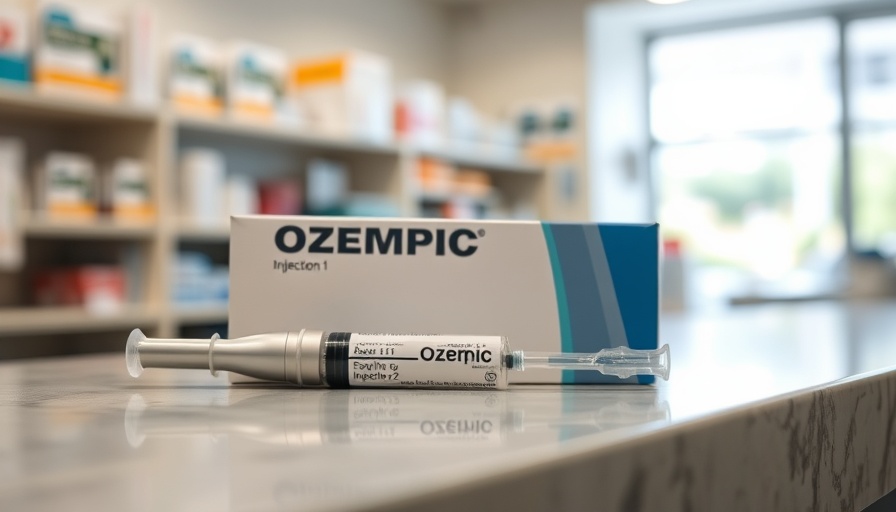
The Implications of the Latest Legal Ruling on Ozempic
In a significant ruling, a U.S. judge has denied compounding pharmacies the right to continue producing copies of Ozempic and Wegovy, drugs that have gained immense popularity for their roles in diabetes management and weight loss. The judge's decision stems from a lawsuit challenging the FDA’s assertion that there is no ongoing shortage of semaglutide, the active ingredient crucial for these medications. This verdict raises several questions about access to these essential drugs and the broader implications for both patients and pharmacists.
The Patient Perspective: Navigating Drug Availability
For patients, particularly those struggling with obesity or diabetes, access to affordable medications like Ozempic is crucial. This ruling could limit options for individuals relying on compounded alternatives—often seen as a more affordable option compared to brand-name medications. Reports indicate that drug shortages have led many patients to experience difficulties in receiving timely treatments, prompting unease within the patient community. The decision not only affects current patients but could deter new patients from pursuing necessary medical treatments going forward.
Impact on Pharmacies and the Compounding Industry
The ruling also has significant ramifications for the compounding pharmacy sector. These pharmacies typically create customized medications for patients when commercial alternatives aren’t suitable. The prohibition against producing Ozempic copies could lead to substantial financial losses for compounding pharmacies that have invested in production capabilities. Moreover, they may need to reassess their business models, which could extend to a reduction in services offered to patients.
Comparative Examples in the Pharmaceuticals Market
In the broader context of the pharmaceuticals industry, this ruling can be paralleled with past cases involving drug shortages and access challenges. The ongoing litigation around other popular medications has often led to similar outcomes, restricting alternative manufacturing solutions when brand-name drugs are deemed sufficient. For illustration, during the COVID-19 pandemic, many compounding pharmacies explored creating versions of critical drugs to address shortages, demonstrating the flexibility and responsiveness of the sector when urgent public health needs arise.
Future Predictions: What Lies Ahead for Ozempic and Wegovy
Looking ahead, this legal decision might encourage further scrutiny from the healthcare community regarding drug pricing and access. Experts predict that persistent concerns over the affordability of medications may prompt legislative or regulatory actions aimed at ensuring equitable access to treatments like Ozempic and Wegovy in the long term. Additionally, favorable court decisions for compounding pharmacies could alter the trajectory of drug availability, emphasizing the perennial tug-of-war between affordability and intellectual property rights.
Understanding Risk Factors in Healthcare Accessibility
As with many issues in healthcare, the ruling introduces a complex interplay of risk factors. Increased regulations on compounded medications could further exacerbate existing issues related to drug shortages, impacting patient outcomes. Moreover, as insurers tighten policies on covered medications, the burden may fall disproportionately on lower-income individuals who may not easily afford out-of-pocket expenses for brand-name drugs.
Final Thoughts on the Current Landscape
This ruling regarding Ozempic and Wegovy illuminates significant stresses within the healthcare system, particularly related to drug accessibility. Patients must remain informed about these developments while advocating for their healthcare rights. As the debate continues, stakeholders, including patients, healthcare providers, and lawmakers, will need to engage in meaningful dialogues to manage the complexities of medication access and affordability moving forward.
 Add Row
Add Row  Add
Add 



Write A Comment